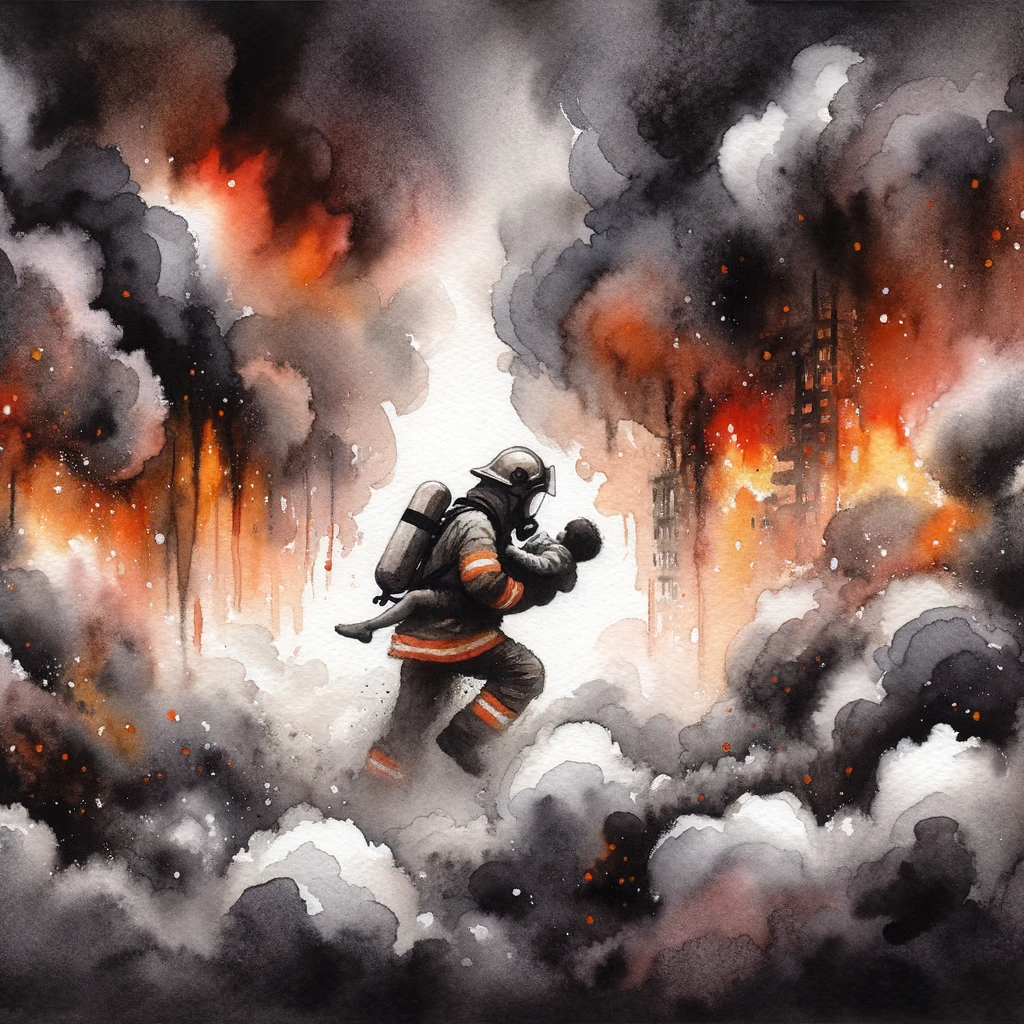Brave
Definition
Brave is used as an adjective, noun, and verb. As an adjective, it describes someone who shows courage and faces difficulties or dangers without fear. As a noun, it can refer to a person who demonstrates bravery. As a verb, it means to face or endure a challenging situation with courage.
Parts of Speech
- Adjective
- Noun
- Verb
Pronunciation
American English
- IPA Pronunciation: /breɪv/
- Respelling: BRAYV
British English
- IPA Pronunciation: /breɪv/
- Respelling: BRAYV
Etymology
The word "brave" originated from Middle French "brave," meaning "splendid" or "valiant," which likely came from Italian "bravo," meaning "bold" or "courageous." The term has been used in English since the 15th century to signify courage or fearlessness.
Derivatives
- Bravery (noun)
- Bravely (adverb)
- Braveness (noun)
- Bravado (noun)
- Braveheart (noun)
Synonyms
- Courageous
- Fearless
- Valiant
Antonyms
- Fearful
- Timid
- Cowardly
Usage
The term "brave" is frequently used to describe acts of courage, resilience, or fearlessness in the face of adversity. For example, "She is known to be a brave firefighter," or "He bravely faced his fears."
Related Terms
- Courage: The ability to confront fear or adversity.
- Valor: Great courage in the face of danger, especially in battle.
- Heroism: Display of noble qualities, often involving courage.
Detailed Definitions
Adjective
- Possessing courage or showing bravery: Describes someone who confronts challenges or dangers without fear.
- Example: "The brave soldier went into battle without hesitation."
Noun
- A person who is brave: Refers to an individual known for courage and fearlessness.
- Example: "The explorers were considered braves of their time."
Verb
- To face or endure something courageously: Refers to the act of confronting a difficult or frightening situation with bravery.
- Example: "He braved the storm to rescue the stranded hikers."
brave



🇨🇳 Mandarin
- 勇敢
- IPA: /jʊŋ˧˥ ɡan˧˥/
- Respelling: yǒng gǎn
🇮🇳 Hindi
- बहादुर
- IPA: /bəˈɦaː.d̪ur/
- Respelling: bahaadur
🇪🇸 Spanish
- Valiente
- IPA: /baˈljente/
- Respelling: ba-lyente
🇫🇷 French
- Courageux
- IPA: /ku.ʁa.ʒø/
- Respelling: koo-rah-zheu
🇦🇪 Modern Standard Arabic
- شجاع
- IPA: /ʃaʒaːʕ/
- Respelling: shajaa'
🇧🇩 Bengali
- সাহসী
- IPA: /ʃaːhsi/
- Respelling: shaahsi
🇷🇺 Russian
- Смелый
- IPA: /ˈsmʲelɨj/
- Respelling: smely
🇵🇹 Portuguese
- Corajoso
- IPA: /ko.ɾaˈʒo.zu/
- Respelling: koh-ra-zho-zoo
🇮🇩 Indonesian
- Berani
- IPA: /bəˈrani/
- Respelling: bə-ra-nee
🇩🇪 German
- Tapfer
- IPA: /ˈtap.fɐ/
- Respelling: tap-fer
🇯🇵 Japanese
- 勇敢
- IPA: /juː.ka̠n/
- Respelling: yūkan
🇻🇳 Vietnamese
- Can đảm
- IPA: /kən˧˧ zaːm˧˧/
- Respelling: kan zaam
🇰🇷 Korean
- 용감한
- IPA: /jʌŋ.ɡam.han/
- Respelling: yong-gam-han
🇹🇷 Turkish
- Cesur
- IPA: /ˈdʒe.sur/
- Respelling: je-sur
🇵🇰 Urdu
- بہادر
- IPA: /bəˈɦaː.d̪ur/
- Respelling: bahaadur





